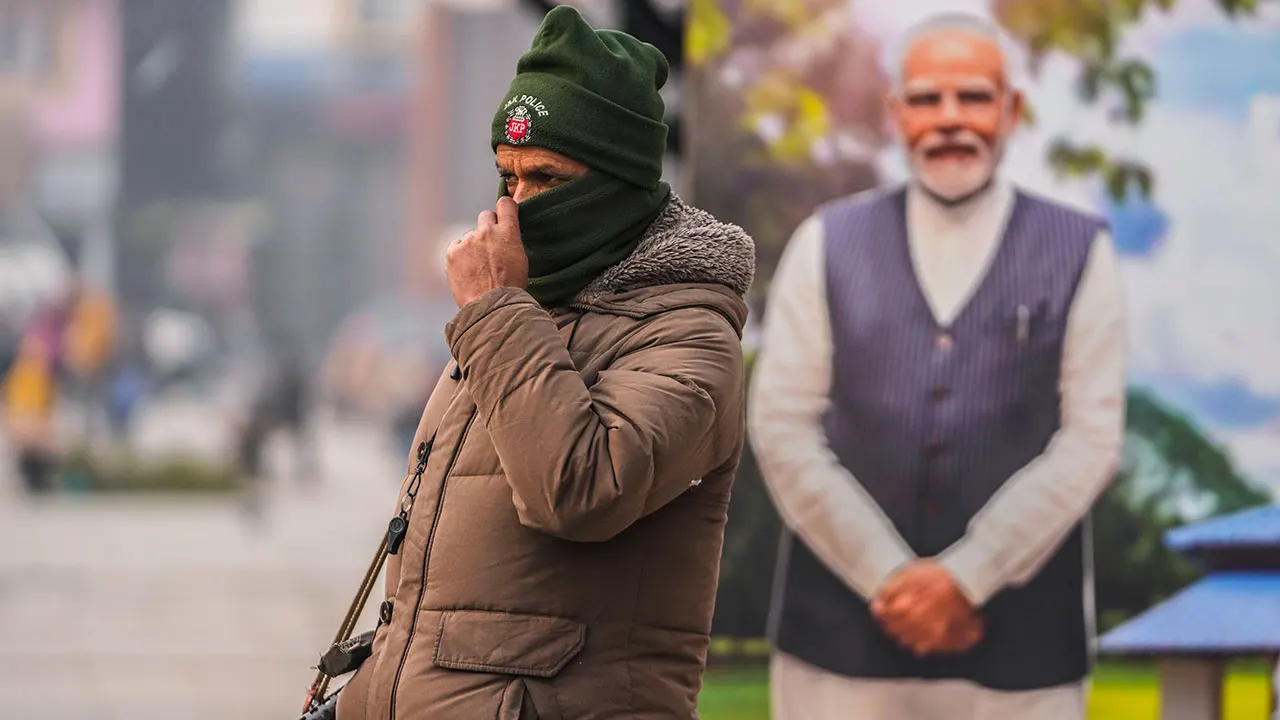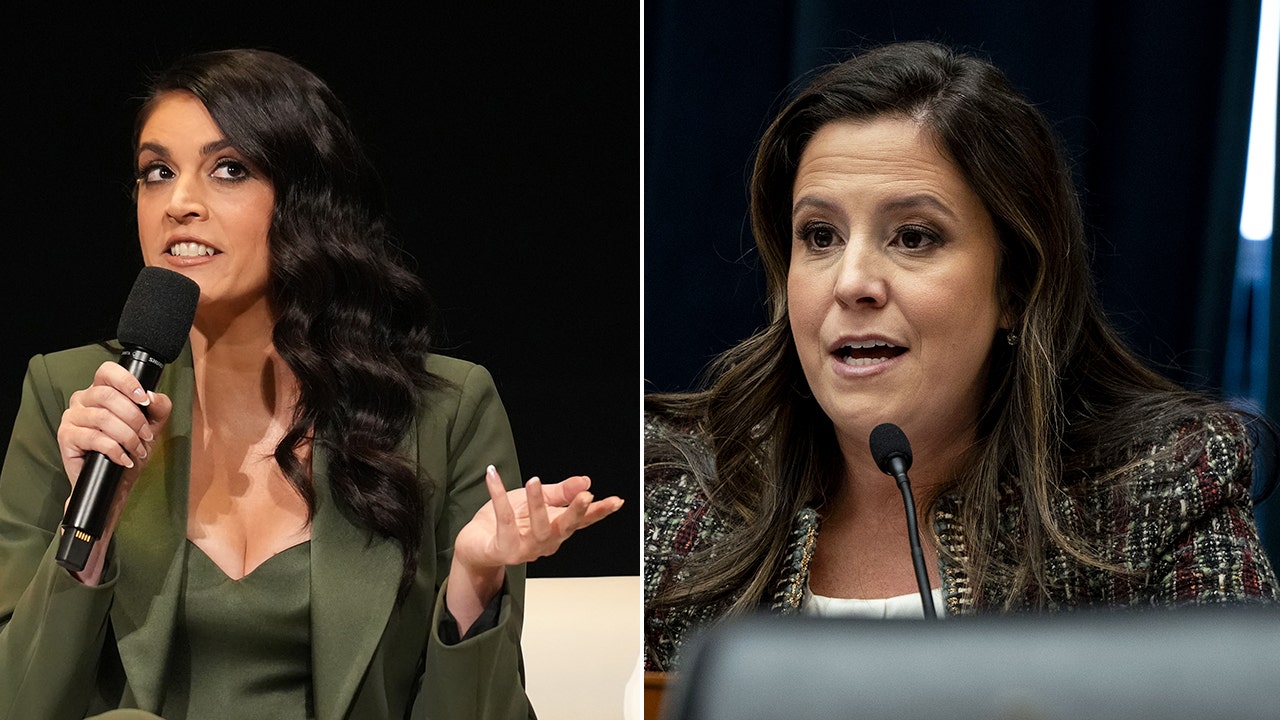Emil Bove III, the acting deputy attorney general, stood stone-faced and alone at the prosecution table inside the federal courthouse in Manhattan last week to do a job his onetime colleagues in the U.S. attorney’s office for the Southern District of New York would not.
Mr. Bove, who runs the day-to-day operations of the Justice Department under President Trump, was there to seek the dismissal of corruption charges against Mayor Eric Adams, a task seen as so dubious that two prosecutors in a prideful office known as the “Sovereign District of New York” resigned rather than carry out his demands to do it.
He lashed out at the office after the hearing. “There are no separate sovereigns in this executive branch,” he wrote in a statement that also suggested his former co-workers prepare to resign if they disagreed.
It was the latest chapter in Mr. Bove’s estranged-family feud with the Southern District, where he rose to prominence as a top terrorism prosecutor and departed in December 2021 after a case he oversaw crumbled over procedural violations by members of his team.
He would go on to become a key member of Mr. Trump’s defense team known for his unyielding style. Since being installed at the Justice Department, he has emerged as one of the most powerful officials in the country and the main enforcer of Mr. Trump’s demands for retribution and unimpeded control of federal law enforcement.
That Mr. Bove, 44, has quashed dissent at the Southern District is an indication of its outsize importance as a symbol of prosecutorial independence — and its enduring role in Mr. Trump’s own long, tortured relationship with the department since his first term. But his forceful tack is also a measure of his own fraught relationship with an office that provided him with the know-how and confidence to now challenge its power and autonomy.
Interviews with more than two dozen former colleagues, current department officials and others, many of whom spoke on the condition of anonymity for fear of reprisal, reveal new details about Mr. Bove’s nine years at the Southern District, a turbulent period that defined his career and foreshadowed his current effort to bend the Justice Department to the Trump agenda.
Jessica A. Roth, a former Southern District prosecutor, said Mr. Bove’s bellicose approach to overriding the judgment of his former office appeared to be an effort to undermine its historical independence.
“It’s this sense of ‘It’s my way or the highway’ and no tolerance for disagreement, even when respectfully presented,” said Ms. Roth, who now teaches at the Benjamin N. Cardozo School of Law in New York. “The notion that disagreement is insubordination is highly distressing.”
Ellen Blain, a former assistant U.S. attorney who worked in the office during Mr. Bove’s tenure, said these actions represented a dangerous new paradigm, forcing career prosecutors “to use the power of the Justice Department to instill fear in the president’s enemies and bestow favors on his friends.”
A spokesman for Mr. Bove had no comment. Harrison Fields, a White House spokesman, accused Mr. Bove’s former colleagues of “leaking sensitive investigative information, mixed with lies,” to the news media. Seeking to invert the criticism of the administration, he called it “an unacceptable weaponization of the criminal justice system.”
A Steady Rise
Mr. Bove began his climb on the low rung of one of the highest-powered U.S. attorney’s offices in the country.
After graduating from the State University of New York at Albany in 2003, he applied for a job as a paralegal in the Southern District, knowing it was the center of the action. To his surprise, he was offered a slot in the securities unit.
He left in 2005 to attend Georgetown University’s law school, after making a strong impression, but was always intent on returning. After two federal clerkships and a stint in a white-shoe law firm, he was hired in 2012 by the Obama-appointed U.S. attorney in Manhattan, Preet Bharara, as a prosecutor.
Mr. Bove would play a significant role in many major investigations over the years, both as a line attorney and supervisor, overseeing the indictment of President Nicolás Maduro of Venezuela on drug-trafficking charges and the conviction of Cesar Sayoc, who was charged with sending pipe bombs to prominent Democrats and other Trump critics.
Mr. Bove racked up convictions at trial and in guilty pleas, as in one case of a Hezbollah operative and another with an F.B.I. employee accused of being an agent for China. A high point, former colleagues said, was the successful prosecution and trial of the man who detonated a pressure-cooker bomb in Manhattan and was sentenced to two life terms in prison.
He took particular pride in his work on terrorism cases, and kept a capped pipe bomb from one of his cases on his desk as a memento, according to people who visited his office.
Veterans of the Southern District like to say they take the work seriously but not themselves. Particularly among the younger lawyers, there is a lot of joking and pranking, and roasts are held when prosecutors leave the office.
Mr. Bove did not quite fit into that mold, former colleagues say. He could be friendly, had a dark sense of humor and bonded with colleagues who shared his enthusiasm for running and working out. But he had a hard edge and could be awkward or short with people.
He was intensely proud of his work in the Southern District, and approached the job with the same intensity he had exhibited as a standout lacrosse player in college.
Then came an episode that appeared to color his view of the office from that point forward.
In 2016, during a corruption investigation into Mayor Bill de Blasio’s 2013 campaign fund-raising, an F.B.I. agent surprised Mr. Bove’s wife, a policy adviser to the mayor, with a request that she turn over records of her communications, according to people with knowledge of the situation.
(There was no allegation of wrongdoing by Mr. Bove’s wife, and Mr. de Blasio was never charged.)
Mr. Bove believed that approach, while not technically improper, was too aggressive and needlessly traumatized his family. He made it clear that he had only wanted a heads-up and would never have tipped off his wife beforehand.
His superiors countered by saying that alerting him could have potentially compromised a sensitive political investigation.
His reaction was instant and emotional. He briefly considered quitting, and was so upset that he took several days off to clear his head. That did not sit well with some of his colleagues who believed he had overreacted, those people said.
If his aggressiveness fueled his success inside the office, it also caused problems and Mr. Bove was advised to take steps to tone down his behavior.
By all accounts, he succeeded, working on a criminal case alongside Nicolas Roos and Danielle R. Sassoon, who this month resigned as interim U.S. attorney at the Southern District rather than sign off on Mr. Bove’s order to dismiss the Adams case.
At the time, both prosecutors praised Mr. Bove’s contributions, according to people familiar with the matter.
But in March 2018, David E. Patton, then the head of the federal public defenders’ office in New York, which represents thousands of indigent defendants in the city, emailed Mr. Bove’s supervisors to relay complaints from defense lawyers.
In the message, obtained by The New York Times, one lawyer described Mr. Bove as vindictive, someone who abused his power and was “impossible to deal with.” Another lawyer called Mr. Bove “completely reckless and out of control.”
One public defender in Mr. Patton’s office cast Mr. Bove as purely adversarial, and prone to defining justice however he saw fit.
Mr. Patton did not ask Mr. Bove’s superiors for any specific disciplinary action, but wrote, “I fear there will be many future problems.” Mr. Patton did not respond to a request for comment.
The complaint appeared to have stalled Mr. Bove’s ascent, delaying his promotion to help run the office’s critical unit that investigates terrorism and international narcotics trafficking cases.
Pursuing Jan. 6
But Mr. Bove sought to address those issues, and by October 2019 his standing improved to the point that he was promoted to co-chief of the terrorism unit.
Tommy Cindric, a former agent for the Drug Enforcement Administration who worked closely with Mr. Bove, said: “Emil is a bulldog. I think he’s an aggressive, smart, obsessive prosecutor. For me, he has a moral compass — and that compass has always been true north.”
During the more than two years that he helped lead the unit, Mr. Bove would oversee some of his most important terrorism and drug cases. But his curt, at times browbeating, management style resurfaced, alienating some subordinates, according to former colleagues.
It was his supervision of another high-profile international prosecution that undermined his position in the office beyond repair — yet also paved his remarkable path to Mr. Trump and a far more commanding role in federal law enforcement.
In 2020, defense lawyers accused prosecutors working under Mr. Bove’s supervision of seeking to hide exculpatory evidence in a case against an Iranian banker, Ali Sadr Hashemi Nejad, who was convicted that March of seeking to evade U.S. sanctions on the Islamic Republic. That July, the judge vacated the conviction and dismissed the indictment after the government acknowledged that there were problems in the way evidence had been turned over to the defense.
In September, the judge issued an opinion excoriating the Southern District for its handling of the case and criticized the office’s leaders for failing to “unequivocally condemn these prosecutors’ improper actions and communications.” In one instance, a prosecutor had suggested to a colleague that they “bury” a document in the trove of records sent to the defense.
The judge ultimately concluded that while government errors and ethical lapses in the case were “pervasive,” she did not find that “prosecutors intentionally withheld documents from the defense or intentionally misled the court.”
It was a major embarrassment to the office.
Around the same time, the Southern District’s leaders had decided to demote Mr. Bove after an internal investigation prompted by complaints about his management style that had caused morale in his unit to plummet, according to three people familiar with the matter. But they kept him in place until the Sadr matter had been resolved, to avoid the appearance that anyone, including Mr. Bove, had done anything intentionally wrong.
In the middle of all this came a convulsive shock, the Jan. 6, 2021, attack on the Capitol.
Mr. Bove, who in his new role at the Justice Department pressured the F.B.I.’s interim leaders to turn over the names of personnel involved in the Jan. 6 investigations, has not publicly acknowledged any role in enforcement efforts after the riot. Yet he was not only involved; he was an unapologetic participant, according to people who worked with him.
Mr. Bove watched the events unfold from his office in Lower Manhattan, and repeatedly expressed determination to help federal prosecutors in Washington in any way he could, according to a former senior department official who worked directly with him.
While the Southern District could play only a limited role, Mr. Bove worked with the New York Joint Terrorism Task Force, never expressed reservations about the investigation, and half-jokingly told a member of his team to come back with an indictment of a rioter or not bother to return to the office, the person said.
A Potential Conflict
By the end of 2021, Mr. Bove moved on, joining a small but well-regarded firm in New Jersey.
Even there he could not escape the gravitational pull of his former office. In the summer of 2023, when Mr. Bove began to represent a woman who had been charged by the Southern District with committing extensive fraud, prosecutors asked that he be disqualified from the case.
Mr. Bove, they wrote, “may be in possession of information he learned” when he worked in the Southern District. “This dynamic creates a conflict of interest given that Bove cannot give his clients his undivided loyalty.”
He pushed back, arguing that his representation of the woman was consistent with legal ethics and that she could waive any potential conflict. Ultimately, she chose not to enter a waiver and he withdrew from the case, angering him.
In September 2023, Mr. Bove joined a law firm run by Todd Blanche, who had also begun his career as a paralegal in the Southern District and was then leading Mr. Trump’s criminal defense. Mr. Bove was quickly added to the Trump defense team.
He took on an expansive role, a hard-driving counterpart to the more laid-back Mr. Blanche, willing to make overtly political arguments in court, to the occasional annoyance of judges.
At one hearing, Judge Aileen M. Cannon, the Trump appointee who presided over the case involving Mr. Trump’s retention of classified documents after his first term, offered a verbal eye-roll when Mr. Bove griped that it was interfering with Mr. Trump’s need to hit the campaign trail. The argument echoed his rationale for dropping the Adams case ahead of the 2025 mayoral election.
“Can we talk about the actual legal issues?” she asked.
But Mr. Trump liked his toughness. During his Manhattan criminal trial in 2024, which stemmed from a hush money payment investigated earlier by the Southern District, Mr. Trump rarely belittled Mr. Bove the way he did his other lawyers during sometimes explosive sessions in a holding room, perhaps because he was second in command to Mr. Blanche, people familiar with the situation said.
The kinship appears to run deeper. Mr. Bove has shown he shares Mr. Trump’s maximalist approach to conflict.
He slammed Ms. Sassoon, a respected prosecutor who is a member of the conservative Federalist Society, for “insubordination and apparent misconduct reflected in the approach that you and your office have taken in this matter.”
He went even further in accusing the Biden-appointed former U.S. attorney in Manhattan, Damian Williams, of opening the Adams investigation to promote his own political career. He offered no evidence to support the claim.
Mr. Bove’s rebuke of the office, and in particular Ms. Sassoon, surprised former colleagues who had been encouraged by his more measured attitude shift a few years earlier.
In fact, the email from the federal public defenders’ office outlining complaints about his conduct had cut so deeply that he displayed a copy of it in his office, telling colleagues it served as a pointed, corrective reminder of his past behavior.
Reporting was contributed by Devlin Barrett from Washington, and Alan Feuer, Matthew Goldstein, Nicole Hong and William K. Rashbaum from New York.















